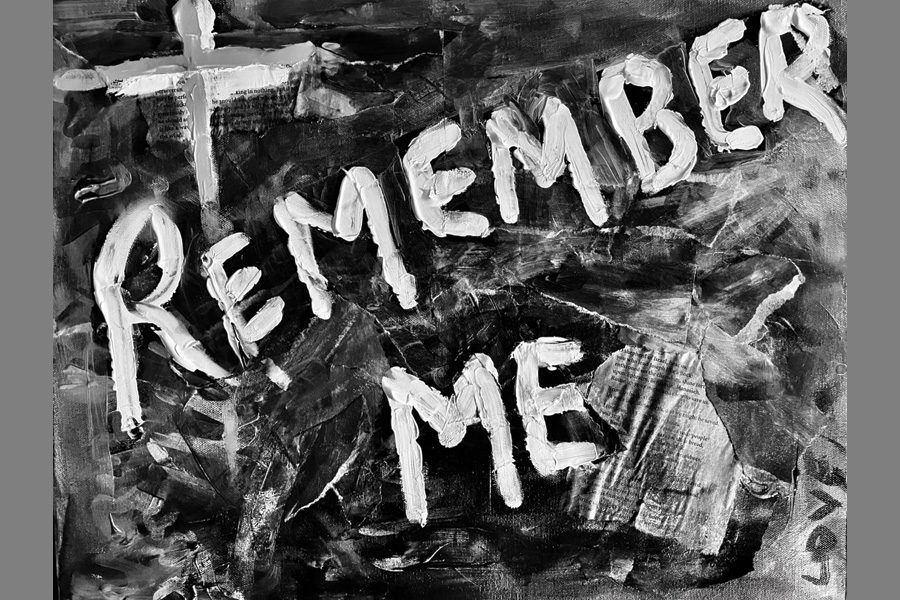Life can be pretty scary sometimes. In the course of an ordinary human life, a person sees some frightening things. But I’d like to suggest that among the most terrible sights, is the face of an angry parent, seen through the eyes of a small child. Now we could speak of either parent, but to help us focus our imaginations, let’s pick one: Let’s consider the case of a small child, whose mother is angry.
Look at it from the child’s perspective. First of all you have a big, strong, resourceful person, angry with a small, helpless one. But there’s far more to it than that. After all, this particular big person is Mom. She has been for the child the source of everything that is good: life, love, sustenance, protection, identity, meaning, knowledge, everything.
And now this source of every good gift is angry with the child. How does the child feel? There must be anxiety about punishment, and even at some level, fear of abandonment. Does she love me anymore? Is she still my Mom? Does she still want me as her child? Is this the end of everything?
And what if the Mother’s anger is justified? What if the child has done something very wrong, and knows it? Then there must be some sense of selfrecrimination.
How could I have been such an idiot? How could I have done such a stupid, pointless thing? And now look what’s happened. If only I could take it back, I’d never do it again!
And imagine how the child searches the mother’s face for the first sign that she may be relenting — how the child aches to see the beginning of a smile, or that affectionate, if ironic, glance that suggests that her anger is waning and that her love endures.
And when the longed for moment comes, when subtle changes in her expression signal to the child that enduring love will quell her anger, what does the child feel? A flood of relief. An outpouring of joy. A deep resolution to be worthy of that wonderful love from that moment forward.
However well or badly this description depicts an encounter between parent and child, I think it does shed light on the encounter between God and Israel in today’s readings.
God has been for Israel the source of every good gift: life, love, sustenance, protection, identity, meaning, knowledge — everything a loving parent would seek to provide a cherished child. But now, it seems, all that has been withdrawn. The people have sinned. God is angry, and Israel is bereaved and despoiled.
Imagine how, in the midst of their suffering, the people reproached themselves for their unfaithfulness to God. How, they must have wondered, could they have been such fools? How could they have so thoughtlessly repudiated their special relationship with the Lord?
And imagine how they strained their senses for any sign that God would relent. How they yearned for the slightest indication that the special tenderness that God had always felt toward them had been rekindled — that divine justice would be tempered by divine mercy. The antiphon of our responsorial psalm must have been their heart-felt cry: “Lord, let us see Your kindness, and grant us Your salvation.”
And, at last, God placed on the lips of the prophet Isaiah, the words that Israel longed to hear — the words of our first reading:
Comfort; give comfort to My people, says your God.
Speak tenderly to Jerusalem, and proclaim to her that her service is
at an end, her guilt is expiated…
A voice cries out:
In the desert prepare the way of the Lord!
Fear not to cry out and say to the cities of Judah:
Here is your God!
Like a shepherd He feeds His flock; in His arms He carries the lambs,
Carrying them in His bosom, and leading the ewes with care.
I wonder if we can conceive of the joy and relief Israel must have felt at these words — if we can imagine the renewed hope and enthusiasm with which they prepared to welcome their Lord — and the depth of their resolution that this time they would be faithful. They would never turn away from their loving God again.
Christians have always believed that the loving shepherd, whose coming is proclaimed by Isaiah, is the same Jesus who is heralded by John the Baptist in our Gospel. It is Jesus who puts right our broken relationship with God — Jesus whose life, death & resurrection allow us to reclaim our status as beloved children of a loving God who wants to be mother and father to each one of us.
Jesus is the sign that whatever we’ve done, God’s love for us endures. And Advent is the season in which we prepare for His coming. So Advent must be a season of renewed hope, just as it was an occasion of hope when Israel heard Isaiah’s words of prophetic comfort, just as it is an occasion of hope when a child sees the look on his mother’s face that makes the child realize, “Nah, she’s not really mad.”
Advent must be a season of deliverance from anxiety — a season of enthusiasm and joy — a season marked by a steadfast resolve that this time, we will be ready to welcome Him, and will never again turn away from the One who is the greatest gift that even God could give.
Rev. Charles B. Gordon, C.S.C., is co-director of the Garaventa Center for Catholic Intellectual Life and American Culture at the University of Portland. He writes and records a regular blog called “Fractio Verbi.”





